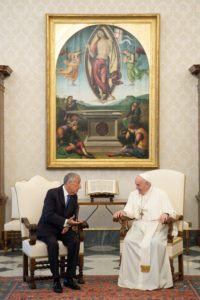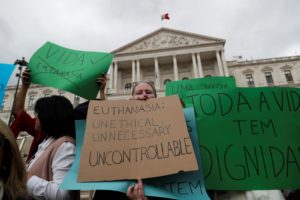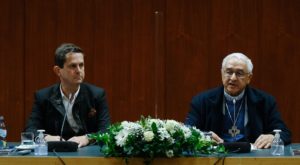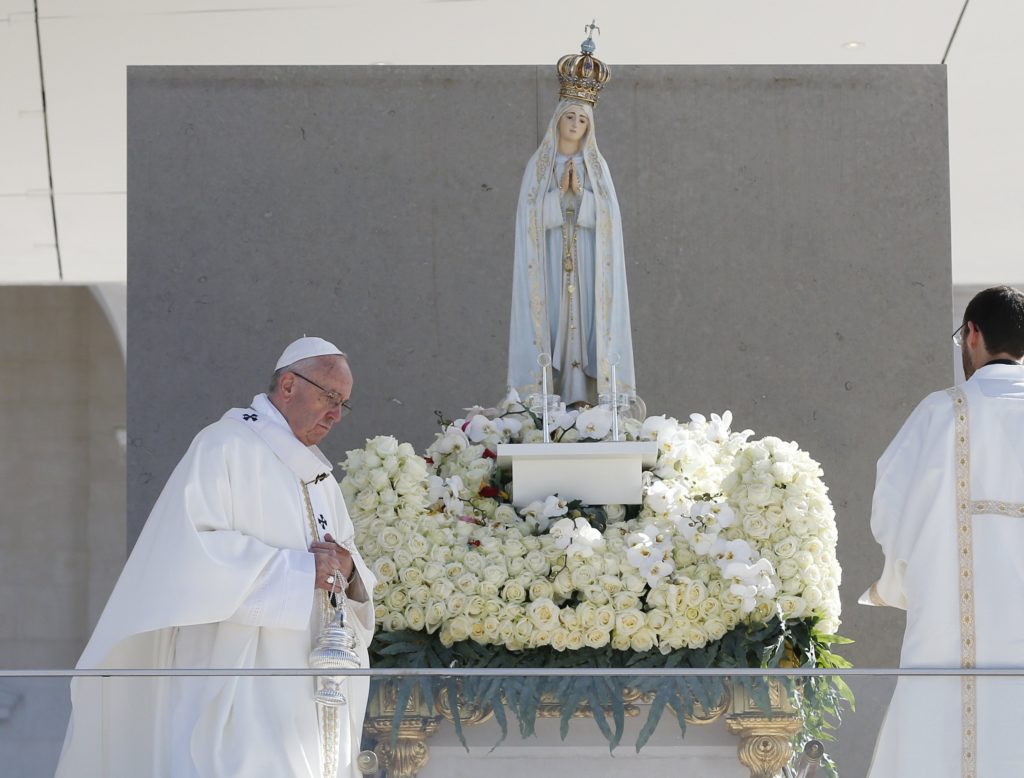ROME — Papal trips, by definition, are a roll of the dice. In the Vatican, a pontiff can largely control the look and messaging of an event; on the road he’s a hostage to fortune, dependent on x factors such as turnout, media coverage, unforeseen local complications, and even his own health.
With that in mind, it’s worth looking ahead at the next big outing Francis has on his schedule, which is an Aug. 2-6 journey to Portugal. Francis is set to travel to Lisbon for World Youth Day, and he’ll also make a side trip to visit the famed shrine of Our Lady of Fátima.
In general, a World Youth Day is about as friendly a crowd as any pope will ever find. Two of the largest crowds for any events in human history, in Manila in 1995 and Rio de Janeiro in 2013, came for the final Mass of a World Youth Day, the first with Pope John Paul II and the second with Francis.
That doesn’t mean, however, the Portugal trip is without its potential pitfalls.
One is actually self-inflicted. In the run-up to World Youth Day, the Vatican issued a commemorative postage stamp depicting Francis leading a small coterie of youth in pointing toward the horizon and, therefore, the future.

The scene was inspired by a famous statue in Lisbon called the “Padrão dos Descobrimentos,” or the “Monument of the Discoveries,” which was erected in 1960 to mark the 500th anniversary of the death of Prince Henry the Navigator. Critics denounced the image as celebrating colonialism, and also as uncomfortably close to the sort of nationalist agitprop in Portugal under the dictatorship of António de Oliveira Salazar.
The fact the stamp appeared just after the Vatican had formally disowned the so-called “Doctrine of Discovery,” justifying the colonial oppression of the New World, caused no small amount of embarrassment, and the Vatican Post Office was forced to withdraw the stamp 24 hours after issuing it.
(Among other things, the kerfuffle means philatelists now have another collector’s item to lust after.)
The controversy comes at a time when Portuguese society is engaged in an examination of conscience regarding its colonial legacy, with President Marcelo Rebelo de Sousa suggesting in late April that Portugal should apologize for past abuses.

No doubt, Francis will be pressed to say something about all this while he’s in town, and may face blowback from indigenous groups arguing that the Vatican’s efforts at reconciliation haven’t gone far enough.
On another front, Portugal’s politics of late have witnessed an unusual public rift between the country’s Socialist Prime Minister, António Costa, and Rebelo, as a result of a scandal involving the country’s national airline TAP.
Should Costa’s government fall, one plausible outcome would be a new conservative coalition including the Chega Party, precisely the sort of far-right, anti-immigrant populist movement, which is Francis’s “bête noire.”
Francis will want to avoid doing anything, even inadvertently, that might destabilize the situation and thus pave the way for Portugal to become the latest European nation, after Sweden and Italy, in which conservative governments have come to power with the help of right-wing populists.
Yet Francis is also allergic to being manipulated for political purposes, and he’s not going to want to create the impression that he’s in town for a Costa campaign rally either. The calculus of how close to the prime minister is too close, therefore, is likely to be a needle-threading exercise as the trip unfolds.

That’s likely to be especially complicated in the aftermath of a May 12 vote in the Portuguese parliament to approve medically assisted suicide in certain cases. The measure effectively overturned earlier vetoes of euthanasia measures by Rebelo, who’s a practicing Catholic.
The next day — which was the feast of Our Lady of Fátima — Francis expressed his disappointment.
“Today when we celebrate the memory of the apparitions of the Virgin Mary to the little shepherds of Fátima, I am very sad, because in the country where Our Lady appeared, a law to kill has been enacted,” he said during an audience with the World Union of Catholic Women’s Organizations.
During the pope’s stay in Portugal, including when he visits Fátima, locals will be listening carefully to see if Francis addresses the euthanasia debate.
Finally, there’s the bombshell triggered in February with the release of a report by an independent commission investigating sexual abuse in Portugal’s Catholic Church, which concluded that at least 4,800 children and young people have been abused by clergy since the 1950s.
Gathered at Fátima in late April, the Portuguese bishops issued a “mea culpa.”
“We acknowledge and present to the survivors of sexual abuse in our Church a deep, sincere, and humble request for forgiveness,” said Bishop José Ornelas Carvalho of Leiria–Fátima, president of the bishops’ conference.

Though Portugal’s experience, sadly, is hardly unique, nonetheless Francis will face pressure to address the soul-searching triggered by the report, and to contribute to efforts at healing and reconciliation with abuse survivors.
Of course, all this is on top of the basic fact that a World Youth Day is a grueling outing for any pope, requiring an enormous investment of energy, especially for an 86-year-old who was recently hospitalized for a severe bout of bronchitis and who increasingly moves only with the aid of a wheelchair or cane.
For all these reasons, the pope’s upcoming journey to Portugal undeniably represents a challenge. On the other hand, to paraphrase the old saying, a pope knows the job is dangerous when he takes it.

